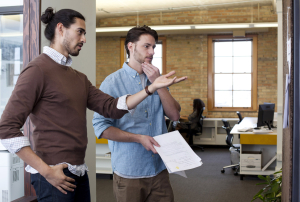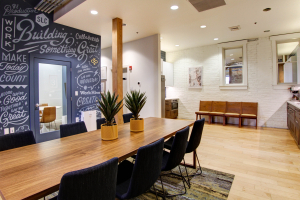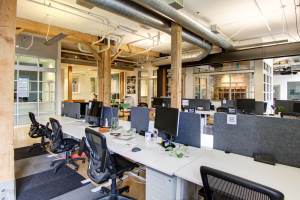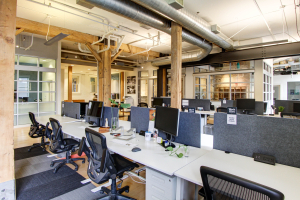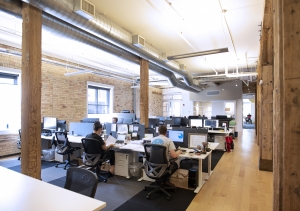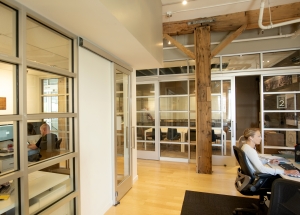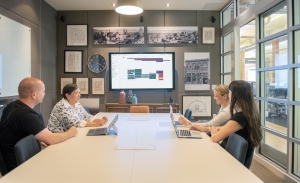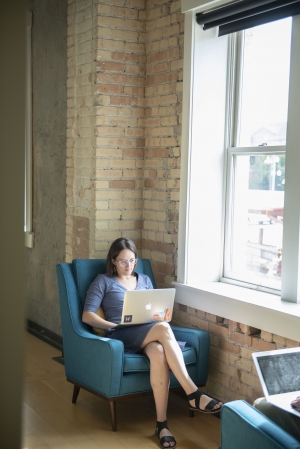6 Key Tips for Staying Productive During the Holiday Season
The last quarter of the year can be a hectic time for most of us. Office festivities, get-togethers with family and friends, travel plans, and shopping for your loved ones can take a toll on your productivity at work.
In a Fast Company article, Lisa Evans (the author) looks to Kory Kogon, a global productivity practice leader for Franklin Covey and coauthor. In order to survive the holiday season, Kogon suggests turning your attention inward to focus on what you need to be successful rather than giving into the demands of the holiday season.
Below are Kogon’s six tips, in the words of Evans, to staying productive during this bustling time of year:
1 Be Intentional
“Staying focused in the midst of the hectic holiday season can seem a daunting task, which is why Kogon recommends implementing the 30-10 promise. ‘Before the week starts, find 30 minutes to think about the things that need to get done in the coming week and prioritize that list,’ she says.
Schedule the most important items in your calendar, allowing the smaller tasks to fill in around them. Then, at the end of each workday, reconcile your calendar. ‘If something didn’t get done, move it to another place; reschedule it,’ says Kogon. Having a plan means you’ll be less likely to fall off track by seasonal distractions.”
2 Take A Break
“The holiday season is a great time of year to take a break. ‘Research shows that taking even a 10-minute break during the day increases productivity,’ says Kogon. Take advantage of the seasonal slowdown to give your brain a much-needed rest. You’ll return to work more energized and ready to be productive in the new year.”
3 Take A Personal Day for Errands
“Between get-togethers with family and friends and holiday shopping, you no doubt find your personal calendar encroaching on your work life during the holiday season. Rather than trying to cram personal errands into your workday, schedule a personal day to focus solely on those domestic and personal holiday preparations. This will allow you to focus 100% of your energy on work while you’re there.”
4 Don’t Be Afraid to Say No
“Is your holiday calendar jam-packed with invites to festive networking events? While you may be tempted to attend them all, Kogon says this can cause unnecessary stress and hinder your productivity.
The key to managing holiday invites is being intentional. Clarify what’s most important for you at the moment. For every invitation you receive, ask whether that event is going to help you to achieve that goal. Accepting an invitation because you don’t want to hurt someone’s feelings can have you burning the candle at both ends and falling behind in meeting your goals.”
5 Avoid Procrastination
“During the rest of the year, you may find you get an adrenaline rush from pushing deadlines, but Kogon says maintaining this mindset during the holiday season is dangerous. There’s a good reason many of us perform at our best while under pressure.
‘Procrastinating gives us a rush of dopamine–the body’s feel-good chemical,’ says Kogon. But during the holiday season, too many distractions and crises may come up, causing your stress levels to be elevated to an unnaturally high level. This can make the holiday season truly unbearable.”
6 Set Expectations
“Be realistic with yourself and others about how much you will be able to do, when you will be available, and when others can anticipate a response from you.
If you normally respond to emails promptly but are facing a particularly taxing day, you may want to set up an email notice to alert others that you may take a little while longer than normal to respond. This not only helps others know what to expect of you, but helps to ease your anxiety over a cluttered inbox.”
How to Protect Your Workday from Email Takeover
You’re passionate about what you do. So, protect the time you spend doing what you love. Too many people let email control their workday.
Karbon HQ Magazine offers some thoughtful pro tips in their article, “10 Email Tips to Increase Productivity and Control your Inbox,” The first three of ten ideas are paraphrased below. You can read the full article here.
How to ensure email doesn’t impact your real work
1. Have a plan: what’s your ideal day?
Like most things, success with email starts with how you approach it. Email is an extremely high volume activity, so even a small change applied over hundreds and thousands of conversations will add up to a lot of time saved. You need to have a purposeful approach, checking at specific times in the day and then leaving email to focus on other things.
You should have an ideal day in mind that lays out specific tasks you want to accomplish. This will ensure you always prioritize focused work over email.
For example, when you first sit down at your desk for the day, you might be in the habit of checking email and social media before anything else. Instead, make that first step be to determine the top three things you want to accomplish for the day. Then, block out time to dedicate to these top tasks. During this time, you should close down email completely.
2. Don’t let email be a constant distraction
To deliver high-value work efficiently and effectively, you need to be able to spend some dedicated time focusing on it, and nothing else. This requires turning off notifications, including ignoring email, so you can achieve a state of deep work.
3. Dedicated time to complete email
Of course, email is essential for communication and collaboration. So you can’t completely ignore it. A proven way to use email effectively is by allocating specific blocks of time to focus your attention on it. A best practice approach is to take three or four 20-minute blocks each day to work through your inbox.
...
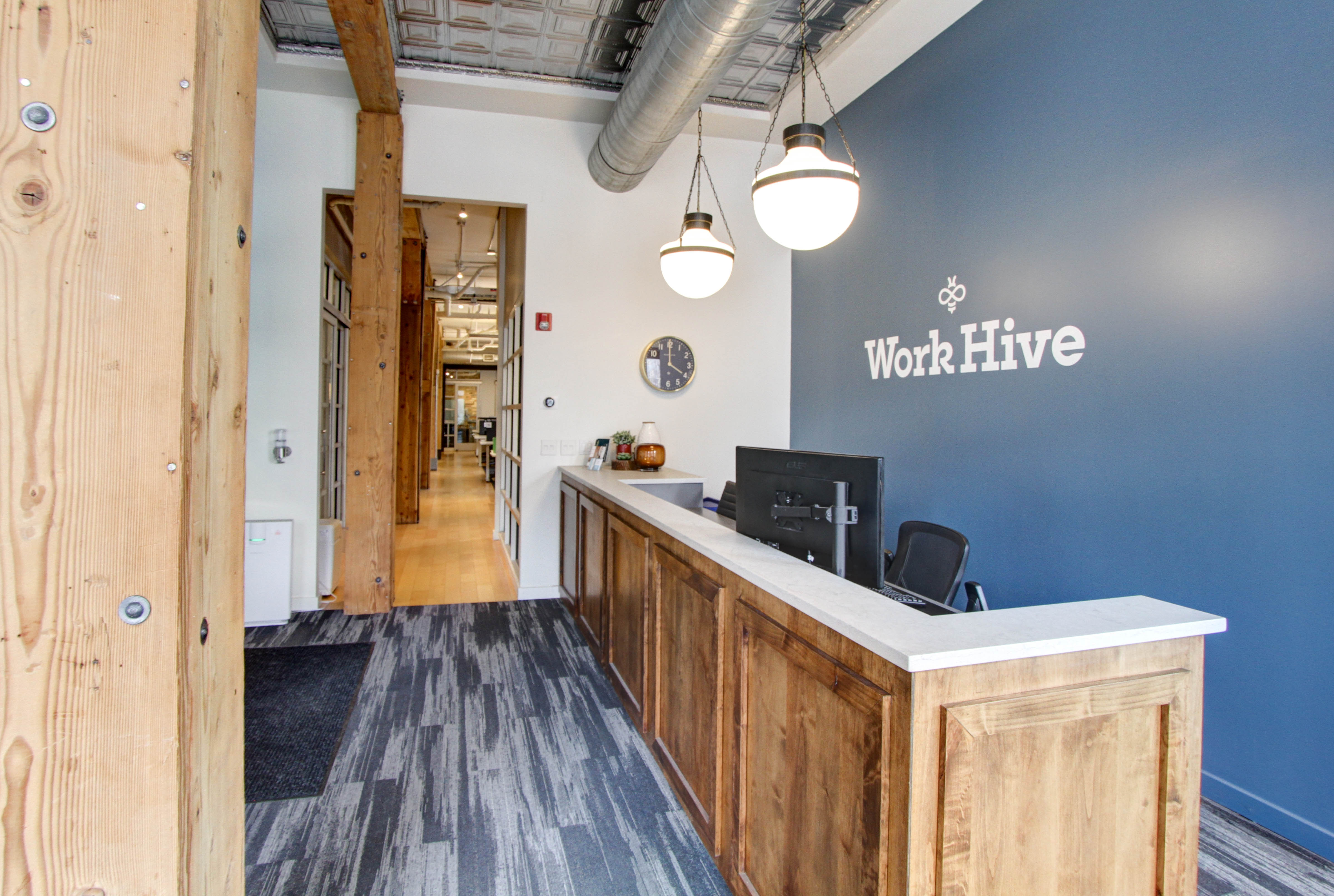
There are several productivity tips that can change the way you work by making email more efficient and practical. But, we won't cover them all at once. Take some time this week to reevaluate the way you email and try out one of these tips. Then, check out our upcoming blog posts for a continued series on mastering emails.
4 Tips for Anyone New to Coworking
If you have never used a coworking space before, you may not know what to expect when you do give it a try. In this post, we hope to help you get up to speed on general coworking etiquette, so you feel that much more comfortable coming to work here.
1. Don’t forget your headphones
Whether you like to listen to music, podcasts, or white noise while you work, make sure you do so privately. A good pair of headphones are an absolute must-have in a coworking space. Not only do they ensure you aren’t bothering others, but noise-canceling headphones can help block out conversations and activities that may be going on around you. Keep in mind that this goes for calls and meetings as well as music. Odds are, nobody else wants to hear both sides of your conversation! Of course, one of the many benefits of a coworking space is the chance to meet and share ideas with other professionals, but sometimes you don’t want to be disturbed, and headphones are a great way to signal that.
2. Make use of call booths
Most communal offices have “phone booths” for making calls or taking short meetings. These booths tend to be soundproof and allow you to talk freely without disturbing those working around you. Make use of these booths as much as possible when you’re on calls or meetings. Some coworking spaces will have a process of reserving booths, while others will be available on a first-come-first-served basis.
3. Keep an eye on the clock
In coworking space etiquette, time is everything. If you’ve reserved a meeting room, be mindful of the person who has booked it after you. If you’re using a phone booth, be aware that others may be waiting to use it as well. The same goes for booking tables or workspaces. Most things in coworking spaces are shared, so keeping to a schedule makes you a good communal user and allows others to do their work as well.
4. Clean up after yourself
General etiquette in most public spaces dictates you clean up after yourself, and coworking spaces are no different. While every shared office will have janitorial services, it’s important to leave your workspace just as clean as you found it, so that the next person can easily sit down and get to work. This also goes for the communal kitchens many coworking spaces will have, as well as printer rooms, meeting spaces, and phone booths.
Whether you decide to work at Work Hive or use another coworking space, these general rules should apply. Being mindful of how we share the space helps us all be comfortable and productive.
Work Hive has the amenities you need to make your day productive -- natural lighting, adjustable height desks in a quiet coworking studio, printing and scanning, coffee, conference rooms, phone rooms, and more. Come try coworking in Downtown Salt Lake City, or try our Sugar House location.
Maximizing Productivity in your Work Week
Staying productive can be a challenge, especially when there are so many distractions and tasks vying for our attention. But by implementing some simple strategies and techniques, you can boost your productivity and get more done in less time.
First, start by setting specific and achievable goals for yourself. This will give you a clear idea of what you need to accomplish and will help you stay focused on the tasks at hand. Be sure to break your goals down into smaller, more manageable tasks, and prioritize them based on importance and urgency. This will help you avoid getting overwhelmed and will ensure that you are making progress on the most important tasks first.
Next, create a schedule and stick to it. This will help you stay on track and avoid getting sidetracked by less important tasks. Be sure to schedule regular breaks into your day, as taking breaks can actually improve your productivity. This will give your mind and body a chance to rest and recharge, allowing you to come back to your tasks with renewed focus and energy.
Another important aspect of staying productive is minimizing distractions. This can be challenging in today's world, where we are constantly bombarded with notifications and alerts from our phones, laptops, and other devices. To combat this, try setting aside specific times during the day to check your email and social media, and turn off notifications for the rest of the day. You can also use apps and tools like Freedom and Cold Turkey to block distracting websites and apps during specific times of the day.
In addition to minimizing distractions, it's also important to optimize your environment for productivity. This means creating a workspace that is free of clutter and distractions, and that is conducive to focus and concentration. Consider investing in a good quality chair and desk, as well as other ergonomic accessories like a mouse and keyboard. You may also want to consider using noise-cancelling headphones to block out background noise, and using a white noise machine to create a soothing work environment. A coworking space can also help you be productive and focused by giving you a space for concentration during your day, separate from your home.
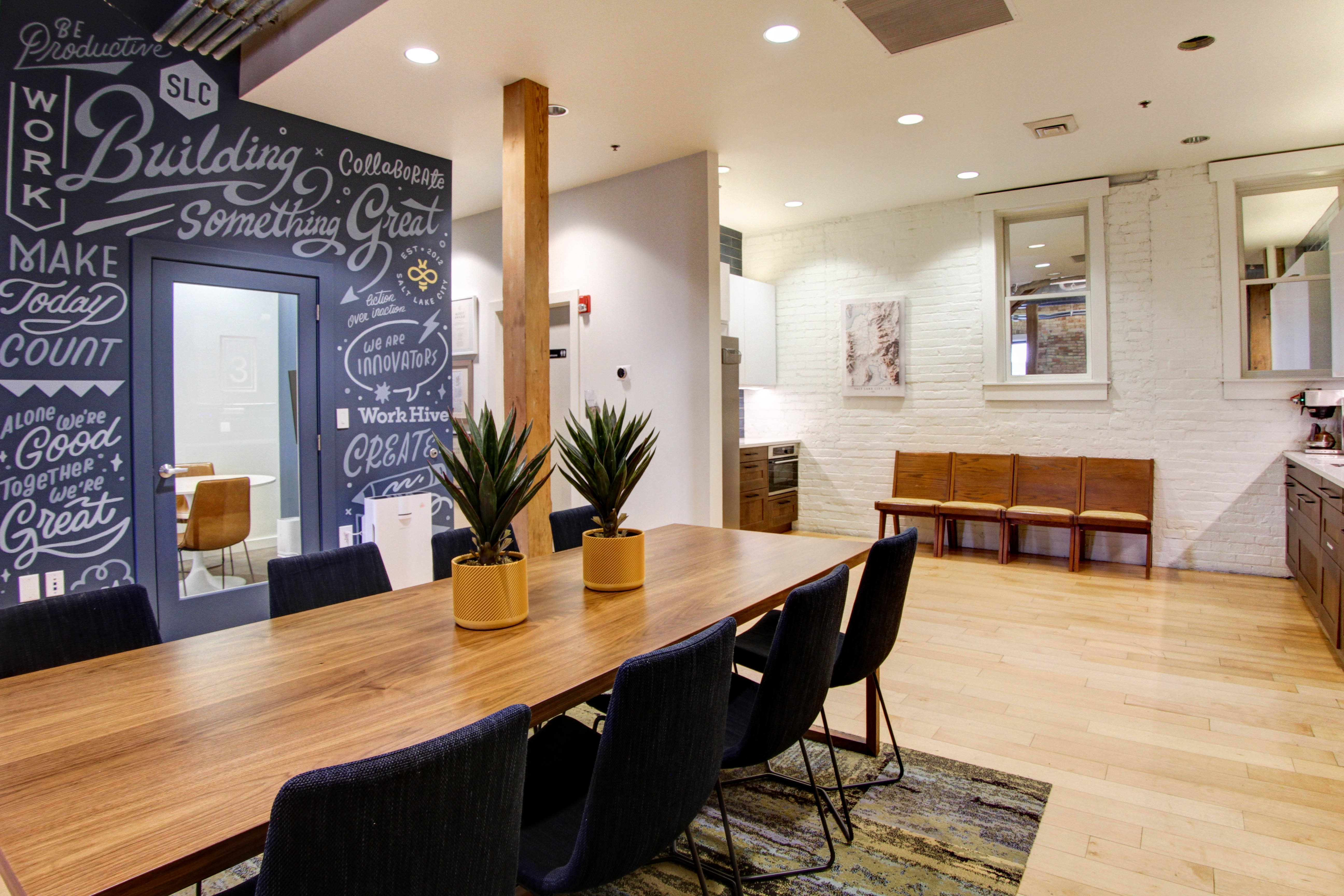
Finally, don't be afraid to ask for help when you need it. This could mean delegating tasks to others, or simply reaching out to a colleague or friend for support and guidance. By asking for help, you can free up your time and energy to focus on the tasks that are most important to you, ultimately boosting your productivity and allowing you to achieve your goals.
In conclusion, staying productive requires a combination of setting specific and achievable goals, creating a schedule and sticking to it, minimizing distractions, optimizing your environment, and asking for help when you need it. By implementing these strategies and techniques, you can boost your productivity and get more done in less time.
At Work Hive, we have the amenities and space you need to get the most out of your work week. We have fast wifi, conference rooms, coffee, phone rooms, and a large shared studio workspace. Book a tour through our site, stop by, or give us a call. We're here to help you maximize your productivity.
5 Steps to a Productive Week
Staying productive can be a challenge, especially when there are so many distractions and tasks vying for our attention. But by implementing some simple strategies and techniques, you can boost your productivity and get more done in less time.
First, start by setting specific and achievable goals for yourself. This will give you a clear idea of what you need to accomplish and will help you stay focused on the tasks at hand. Be sure to break your goals down into smaller, more manageable tasks, and prioritize them based on importance and urgency. This will help you avoid getting overwhelmed and will ensure that you are making progress on the most important tasks first.
Next, create a schedule and stick to it. This will help you stay on track and avoid getting sidetracked by less important tasks. Be sure to schedule regular breaks into your day, as taking breaks can actually improve your productivity. This will give your mind and body a chance to rest and recharge, allowing you to come back to your tasks with renewed focus and energy.
Another important aspect of staying productive is minimizing distractions. This can be challenging in today's world, where we are constantly bombarded with notifications and alerts from our phones, laptops, and other devices. To combat this, try setting aside specific times during the day to check your email and social media, and turn off notifications for the rest of the day. You can also use apps and tools like Freedom and Cold Turkey to block distracting websites and apps during specific times of the day.
In addition to minimizing distractions, it's also important to optimize your environment for productivity. This means creating a workspace that is free of clutter and distractions, and that is conducive to focus and concentration. Consider investing in a good quality chair and desk, as well as other ergonomic accessories like a mouse and keyboard. You may also want to consider using noise-cancelling headphones to block out background noise, and using a white noise machine to create a soothing work environment. A coworking space can also help you be productive and focused by giving you a space for concentration during your day, separate from your home.

Finally, don't be afraid to ask for help when you need it. This could mean delegating tasks to others, or simply reaching out to a colleague or friend for support and guidance. By asking for help, you can free up your time and energy to focus on the tasks that are most important to you, ultimately boosting your productivity and allowing you to achieve your goals.
In conclusion, staying productive requires a combination of setting specific and achievable goals, creating a schedule and sticking to it, minimizing distractions, optimizing your environment, and asking for help when you need it. By implementing these strategies and techniques, you can boost your productivity and get more done in less time.
6 Tips for Staying Productive During the Holiday Season
The end of the year can be a hectic time for most of us. Office festivities, get-togethers with family and friends, travel plans, and shopping for your loved ones can take a toll on your productivity at work.
In a Fast Company article, Lisa Evans (the author) looks to Kory Kogon, a global productivity practice leader for Franklin Covey and coauthor. In order to survive the holiday season, Kogon suggests turning your attention inward to focus on what you need to be successful rather than giving into the demands of the holiday season’s demands.
Below are Kogon’s six tips, in the words of Evans, to staying productive during this busy time:
Be Intentional
“Staying focused in the midst of the hectic holiday season can seem a daunting task, which is why Kogon recommends implementing the 30-10 promise. ‘Before the week starts, find 30 minutes to think about the things that need to get done in the coming week and prioritize that list,’ she says.
Schedule the most important items in your calendar, allowing the smaller tasks to fill in around them. Then, at the end of each workday, reconcile your calendar. ‘If something didn’t get done, move it to another place; reschedule it,’ says Kogon. Having a plan means you’ll be less likely to fall off track by seasonal distractions.”
Take A Break
“The holiday season is a great time of year to take a break. ‘Research shows that taking even a 10-minute break during the day increases productivity,’ says Kogon. Take advantage of the seasonal slowdown to give your brain a much-needed rest. You’ll return to work more energized and ready to be productive in the new year.”
Take A Personal Day for Errands
“Between get-togethers with family and friends and holiday shopping, you no doubt find your personal calendar encroaching on your work life during the holiday season. Rather than trying to cram personal errands into your workday, schedule a personal day to focus solely on those domestic and personal holiday preparations. This will allow you to focus 100% of your energy on work while you’re there.”
Don’t Be Afraid to Say No
“Is your holiday calendar jam-packed with invites to festive networking events? While you may be tempted to attend them all, Kogon says this can cause unnecessary stress and hinder your productivity.
The key to managing holiday invites is being intentional. Clarify what’s most important for you at the moment. For every invitation you receive, ask whether that event is going to help you to achieve that goal. Accepting an invitation because you don’t want to hurt someone’s feelings can have you burning the candle at both ends and falling behind in meeting your goals.”
Avoid Procrastination
“During the rest of the year, you may find you get an adrenaline rush from pushing deadlines, but Kogon says maintaining this mindset during the holiday season is dangerous. There’s a good reason many of us perform at our best while under pressure.
‘Procrastinating gives us a rush of dopamine–the body’s feel-good chemical,’ says Kogon. But during the holiday season, too many distractions and crises may come up, causing your stress levels to be elevated to an unnaturally high level. This can make the holiday season truly unbearable.”
Set Expectations
“Be realistic with yourself and others about how much you will be able to do, when you will be available, and when others can anticipate a response from you.
If you normally respond to emails promptly but are facing a particularly taxing day, you may want to set up an email notice to alert others that you may take a little while longer than normal to respond. This not only helps others know what to expect of you, but helps to ease your anxiety over a cluttered inbox.”
"Office Buzz" In Coworking Spaces Helps With Productivity. Here's How.
As coworking spaces have become all the rage in recent years almost regardless of the improving job market and overall economy, the most common commentary about being a member at one is the possibility of community, connection, and collaboration.
It makes sense that being around strangers all day long and sharing a kitchen and bottomless coffee before some kind of networking event begins will encourage socializing, but something still needs to actually inspire that drive to connect.
In 2012 an article was posted on Geekpreneur about the first introduction of coworking spaces and why they were becoming successful.
The article mentions the power of the studio's noise level. There is a certain kind and volume of noise that is optimum for people to be productive and subsequently motivated to engage with others around them.
The author writes: "A good co-working office will have the buzz of a workspace rather than the relaxed atmosphere of a home or the multiple distractions of a corner table in a café. When you’re surrounded by other freelancers who have their heads down and are focused on a project, peer pressure forces you to do the same."
Much like a college library, a certain level of buzzing noise that indicates people talking, rustling papers, or tapping on computer keyboards creates the office environment full of productivity and focus without forcing you to be in a cubicle jungle watching the clock.
The article goes on to argue that working with your headphones in may not always be the most productive method because it cuts you off from the aforementioned noise, relies heavily on your choice of music, and cuts you off from socializing and connecting with your peers around you.
Of course, we are not suggesting that you socialize all day long and open yourself to be interrupted and distracted every day, but letting the noise of the people around and then making sure to get up, walk around, and say hello to someone, however briefly, will have a tremendous impact on your productivity and potentially the future of your career.
How Listening to Ambient Noise Can Boost Your Productivity
Coworking spaces can get busy. Typically, there are few sound barriers to stifle our long-winded business calls or random personal calls that come along during the day.
The noise is exacerbated by the fact that all of those calls and meeting and conversations and lunch breaks are occurring at totally different times, which means that the noise level cannot be predicted day to day.
For this reason, a lot of coworking spaces and open concept offices can also look a bit antisocial with so many people wearing headphones and trying hard not to look at the text message that just beeped on their phones or the coworker across the way they know just wants to gossip.
But putting on headphones does not mean that coworking space members are being productive. It can often be the opposite.
One playlist might be perfect for working out and road trips but does not work well for crunching numbers or designing websites.
A great article on The Muse provides suggestions for websites that offer free ambient noise for you to listen to when the Mozart or Justin Bieber playlists just aren't helping anymore. The article even categorizes its suggestions into feeling states, including:
- Relaxed
- Distracted
- Uninspired
- Motivated
- Overwhelmed
- Peaceful
- Stressed
- Adventurous
As we all know, our emotions fluctuate throughout a workday, sometimes dramatically, and often due to triggers that are not even work-related.
As our feeling states change throughout the day, so will the interventions needed to support those feelings.
As an old Work Hive member stated:
"I had the perfect short playlist in college I played on repeat that helped me cruise through writing long papers, but over time my musical interests and the type of work has changed so that playlist does not work for me any longer."
Even though "ambient noise" often makes people think bland elevator music and meditation music often makes people fall asleep, the emotion-specific ambient noise might just be the solution for the daily distractors and your productivity.
The Five-Minute Trick That Will Make Your Meetings More Productive
Meetings can be unproductive and time-consuming.
What if you could find a way to have such a productive meeting, that you could end it early? It’s seems like a radical idea, but it’s doable.
Terra Bohlmann, a business strategist and creator of The Business Map Method, has a three-step, five-minute system to make your next meeting more productive.
Step One — Reflect and Close Your Mental Loop (2 minutes)
Use this time to write up meeting notes, decisions made, and the next steps that need to happen. You can reference these notes during your meeting. Bohlmann states:
“Avoid the impulse to make a quick phone call, check email, or solicit input from someone else. Don’t fall for these traps because there’s nothing worse than being late to your next meeting.”
Step Two — Prepare For Your Next Meeting By Defining Your Goal (2 minutes)
“Review any previous notes and decide on the top goal you want to accomplish during your next meeting. If you are leading the meeting, jot down a simple agenda that you’ll share with others when you kick-off the meeting and your top goal,” advises Bohlmann.
When you lead a meeting, try and be as specific as possible with what you want to complete by the end of the meeting. By being specific with your goals for the meeting, the attendees will remain focused and productive.
Step Three — Give Your Brain a Well-Deserved Break (1 minute)
Before heading into the meeting and after you’ve prepared, take a mental break. Everyone is different, but Bohlmann suggests standing, stretching, and taking deep breathes. By taking this break, you’ll be able to go into you next meeting with a clear head.
“Don’t feel pressure to get to your meeting early to make small talk. Be on time, be fully present for the group, and end the meeting early,” states Bohlmann.
Try this system the next time you’re leading a meeting, and see if it makes a difference!
How To Create Your Perfect Productivity Schedule
Has anyone ever told you to have a chock-full morning routine in order to "face the day" and maximize your productivity?
We all have. But it can't be effective for everybody. People work differently and certainly feel differently in the morning.
Some people exercise and make a breakfast and read the newspaper (or the news on their iPad) and french press their coffee all before heading to work, while many others get out of bed and walk out the door and find productivity at other times of day.
Aytekin Tank, founder of JotForm, discusses how you can map out your energy levels throughout the day in order to determine when you are most productive.
Structure
Once you know your patterns, you can begin to schedule your day around that. Tank explains that those in the design and coding industries, for example, plan out their work days very differently than those in finance, teaching, or management.
The types of meetings they schedule are as different as the specific work that they focus on for hours on end in a flow state.
What type of productive time frames does your specific job demand?
What time of day is best to schedule those time frames for you?
Discipline
Once you begin to create a schedule of when you are most productive, you must make it a habit.
Many online calendars have features that allow you to schedule something that day and way every week automatically so that it is out of your hands and allows coworkers to see that you are not to be disturbed during that time period.
Furthermore, decide how your work schedule affects the rest of the day. Knowing when you like to exercise will dictate when you start your workday. Committing yourself to unplugging and relaxing your mind on the weekends will dictate the way you commit to your productive time frames during the workday.
As has been mentioned in a previous post, the new modern structure of offices and work schedules has offered flexibility to employees to employ their personal health habits however is most effective for them and in the most productive times of day.
Start with your own personal map:
- What time of day do you like to exercise?
- What time of day do you feel the most productive?
- What kind of work do you feel the most productive working on?
- What time of day do you wish to make sure you leave the office?

